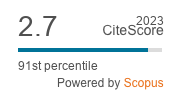The right to be forgotten: a gap between Europe and United States
DOI:
https://doi.org/10.26441/RC18.1-2019-A13Keywords:
right to be forgotten, Internet, right to information, right to privacyAbstract
The right to be forgotten has become a matter of capital importance, as a consequence of the impact that the Internet is having on the privacy of citizens. In this context, this article analyzes the different forms of protection of this emerging right in codified systems and common law systems, in order to account for the different realities that are being created in both continents, where the aim is to balance the right to information with the right to be forgotten in an era where digital memory does not forget or forgive.
Metrics
References
Anguita, P. (2016). Acciones de protección contra Google. Análisis del llamado derecho al olvido en buscadores, redes sociales y medios de comunicación. Santiago: Librotecnia.
Austin, L. (2003). Privacy and the question of technology. Law and and Philosophy, 22, 119- 166.
Ayala, T. (2016). Memoria versus olvido: La paradoja de Internet. UNIVERSUM, 31 (1), 31- 44.
Balkin, J. M. (2016). Information fiduciaries and the first amendment. University of California- Davis Law Review, 49 (4),1128-1234.
Bennett, S. C. (2012). The "Right to be forgotten": reconciling EU and US perspectives. Berkely Journal of International Law, 30 (1), 161- 195.
Bernal, P. (2011). A Right to Delete? European Journal of Law and Technology, 2 (2), 1-18.
Cook, L. (2015). The right to be forgotten: a step in the right direction for cyberspace law and policy, Journal of Law, Technology and the Internet, 6, 121- 132.
Coonley, C. (2010). The right to delete. AAAI Spring Symposium, Series, 54.
Corral, H. (2017). El derecho al olvido en internet: antecedentes y bases para su configuración jurídica. Revista Jurídica Digital UANDES, 1, 43- 66.
Cotino, L. (2018). Google y el derecho al olvido en Europa. Algunos “olvidos” y otras tendencias negativas respectos de las libertades informativas en internet. En Labrador, M. J. y Carter, E. (coords.), Google: derecho al olvido y desafíos éticos en el escenario mediático digital (pp. 129- 168). Santiago de Chile: Ril Editores.
Cuñado de Castro, F. y Gámez, Ruth (2017). Introducción al Common Law. Navarra: Thomson Reuters.
De Beats, A. (2016). A historian’s view on the right to be forgotten”. International Review of Law Computers and Technology, 30 (1-2), 57- 66.
Fernández, L. A. (2016): El nuevo reglamento europeo de protección de datos. Foro Nueva Época, 19 (1), 395- 411.
Friedman, L. M. (2007). Guarding life’s dark secrets. Legal and social controls over reputation, propriety, and privacy. Standford: Standford University Press.
Grimmelmann, J. (2009). Saving Facebook. Iowa Law Review, 94, 1137- 1206.
Guasch, V. (2015). El derecho al olvido en internet. Revista de Derecho UNED, 16, 989- 1005.
Hernández, M. (2013). Derecho al olvido en internet como nuevo derecho fundamental en la sociedad de la información. Perspectiva constitucional española y europea. Quid Iuris, 21,115- 148.
Jones, M. L. (2016). Crtl Z The right to be forgotten (Nueva York, NYU Press).
Klingenberg, A. M. (2016). Catches to the right to be forgotten, looking from an administrative law perspective to data processing by public authorities. International Review of Law, Computers and Technology, 30 (1-2), 67- 75.
Koops, B. (2012). Forgetting Footprints, Shunning Shadows. Tilburg Law School Research, 8, 1-29.
Mayer- Schönberger, V. y Cukier, K. (2013). The Rise of Big Data: How it’s Changing the Way We Think about the World. Foreign Affairs, 92, 28-40.
Mayer- Schönberger, V. (2009). Delete. The Virtue of Forgetting in the Digital Age. Princeton: Princeton University Press.
McNealy, J. (2012). The emerging conflict between newswhorthiness and the right to be forgotten. Northern Kentucky Law Review, 39 (2), 119- 135.
Mills, J. L. (2008). Privacy: the lost right. Oxford: Oxford University Press.
Moreno, Á. y Serrano, I. (2017). El derecho al olvido digital. Especial consideración al caso chileno. En Machado, P. (coord.), Pensamiento Jurídico Central (pp. 37- 52). Valencia:Tirant lo Blanch.
Moreno, Á. (2017). Intimidad y menores. Madrid: Centro de Estudios Políticos y Constitucionales.
Muñoz, A. M. (2015). Eliminación de datos personales en internet: El reconocimiento del derecho al olvido. Revista Chilena de Derecho y Tecnología, 4 (2), 215- 261.
Pérez, A. M. (2016). Cuando google juega con la información privada… el derecho al olvido digital en Europa, una lucha de titanes. Revista La Propiedad Inmateria, 22 (julio-diciembre), 173- 186.
Prosser, W. (1960). Privacy. California Law Review, 48 (3), 383-423.
Rallo, A. (2014). El derecho al olvido en Internet. Google versus España. Madrid: Centro de Estudios Políticos y Constitucionales.
Rosen, J. (2012). The right to be forgotten. Standford Law Review, 64, 88-92.
Rosen, J. (2000). The Unwanted Gaze the Destruction of Privacy in America (Nueva York, Random House).
Saldaña, M. N. (2011). El derecho a la privacidad en los EEUU: aproximación diacrónica a los intereses constitucionales en juego. Teoría y Realidad Constitucional, 28, 279-312.
Simón, P. (2015). El reconocimiento del derecho al olvido digital en España y en la UE. Efectos tras la sentencia del TJUE de mayo de 2014. Barcelona: Bosch.
Solove, D. (2007). The future of reputation: gossip, rumor and privacy on the internet. Yale: Yale University Press.
Solove, D. (2004). The digital person: Technology and Privacy in the Information Age. Nueva York: NYU Press.
Touriño, A. (2014). El derecho al olvido y a la intimidad en Internet. Madrid: Catarata.
Tutt, A. (2015). The revisability principle. Hastings Law Journal, 66, 1113- 1159.
Warren, S., Brandeis, L. (1890). The right to privacy, Harvard Law Review, 4 (5),193-220.
Werro, F. (2009). The right to inform v. the right to be forgotten: a transatlantic clash. Georgetown University. Center for transnational legal studies colloquium, 2, 285-300.
Westin, A. F. (1970). Privacy and Freedom. Nueva York: Atheneum.
Whitman, J. Q. (2004). The two western cultures of privacy: Dignity versus liberty. Yale Law Journal, 113, 151- 1221.
Xanthoulis, N. (2013). The right to oblivion in the information age: a human- rights based approach. U.S.- China Law Review, 84- 98.
Youm, K. y Park, A. (2016). The right to be forgotten in european union law: data protection balanced with free speech? Journalism and Mass Communication Quarterly, 93 (2), 273- 295.
Zárate, S. (2013). La problemática entre el derecho al olvido y la libertad de prensa. Derecom, 13 (marzo-mayo), 1- 10.











 Portal de Revistas de la Universidad de Piura.
Portal de Revistas de la Universidad de Piura.